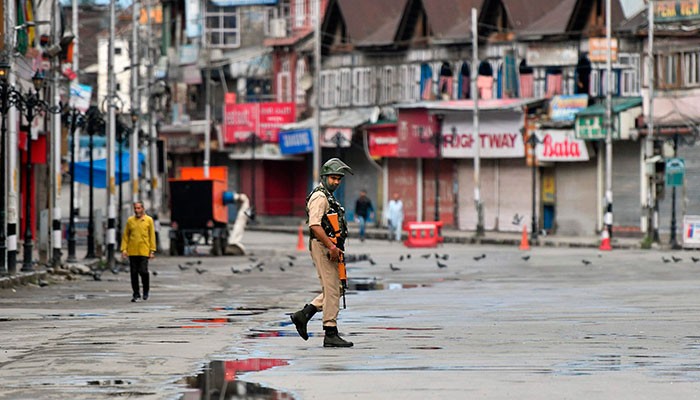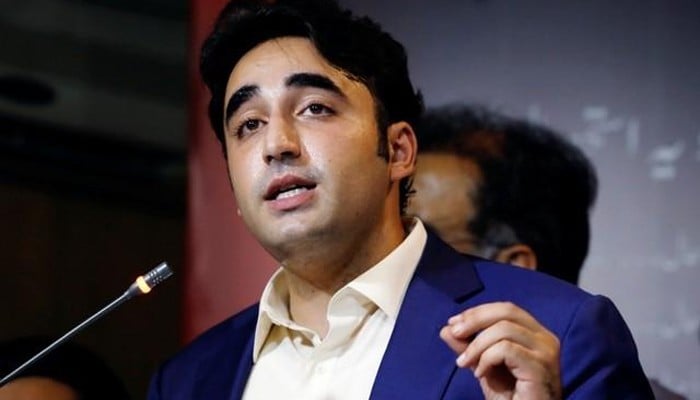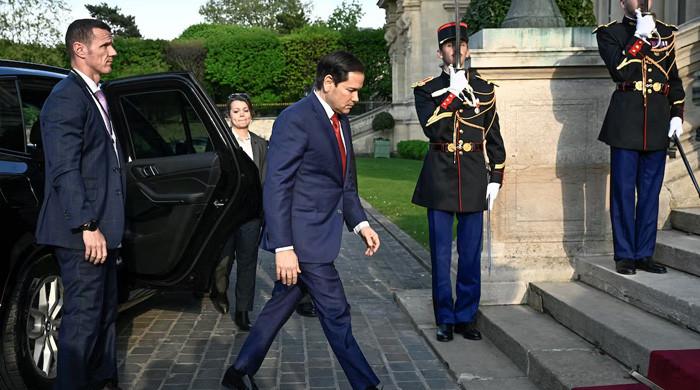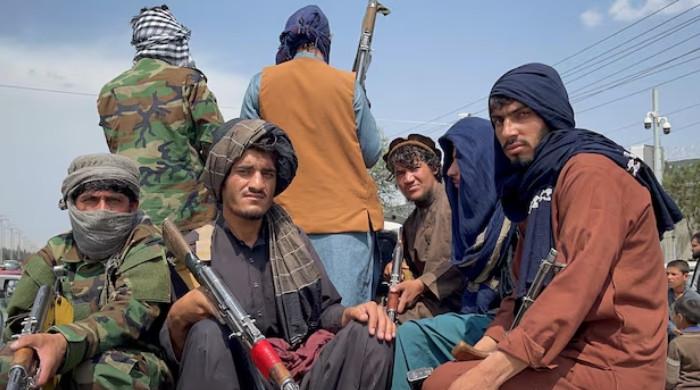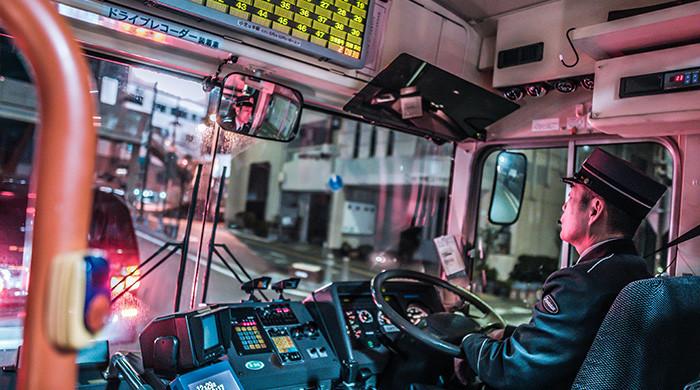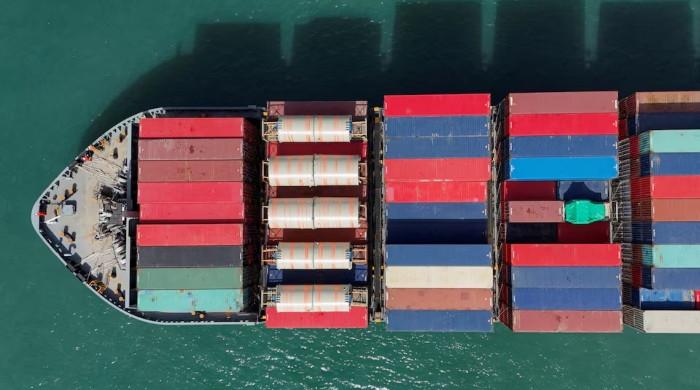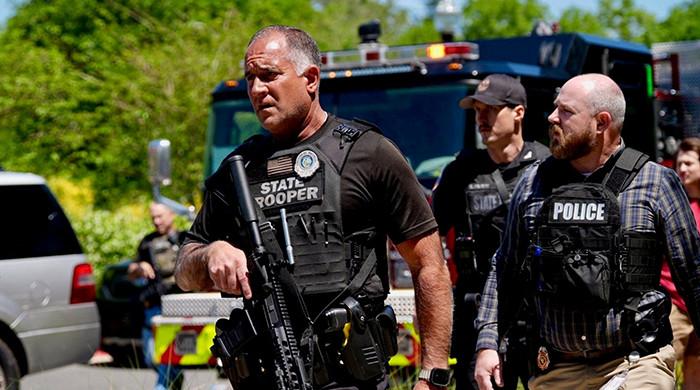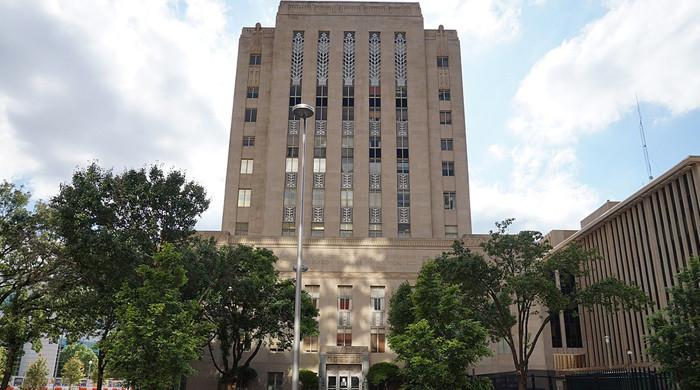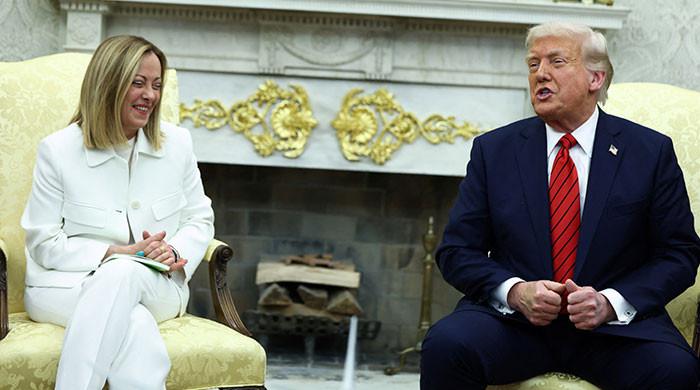Despite curfew, Kashmiris brave violent clashes to march in protest
Kashmiri resistance leaders had called for protest despite a stringent curfew and restrictions implemented to prevent march from reaching UN office
August 23, 2019
SRINAGAR: People took to the streets in occupied Kashmir on Friday as resistance leaders called for protest despite stringent curfew as well as other restrictions implemented to prevent the march from reaching the United Nations military observers' office in the capital's Sonawar area.
According to international media, however, violent clashes erupted between the demonstrators chanting against India's illegal occupation of Kashmir and its aggression in the valley and security forces sent by New Delhi in Soura.
International media outlets also reported that at least two people were wounded. Separately, data from the Kashmir’s two main hospitals shows indicates that at least 152 people have suffered injuries from tear gas and pellets in the disputed Himalayan region ever since India's sweeping crackdown.
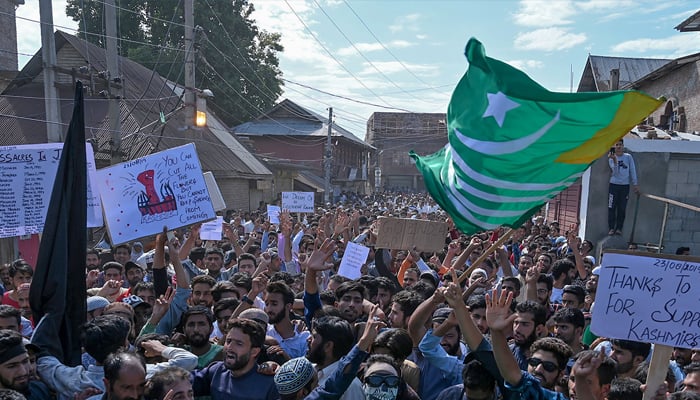
A local government official in Kashmir, however, said the number of injured was probably higher than the figures from the two hospitals.
The clashes occurred after the Friday prayers, with Indian soldiers using pellet gun shells and tear gas at the protesters. The Kashmiri folks, on the other hand, were only using stones and rocks at the security forces.
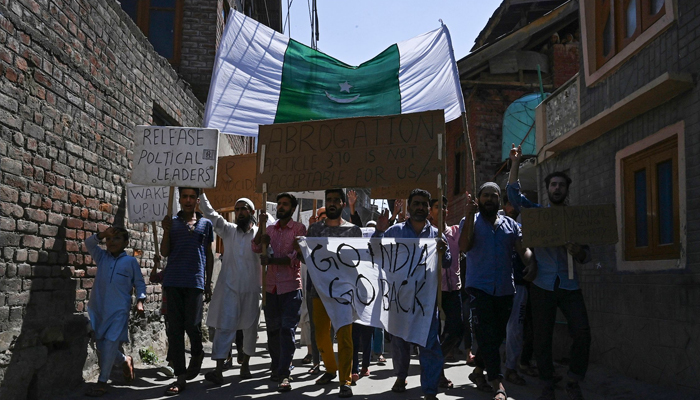
The protest, which started shortly after noon as people started to congregate after the prayers, had commenced peacefully and went on for at least a couple of hours. It only turned violent when Indian soldiers tried to gain access through a street on the side and the demonstrators pushed them back.
It was primarily aimed to push back against the illegal occupation, Indian soldiers' violence, and resist New Delhi's efforts to change the regional demography. People also marched to demand the global fraternity to take serious notice over the genocide being committed by the Indian forces in occupied Kashmir.
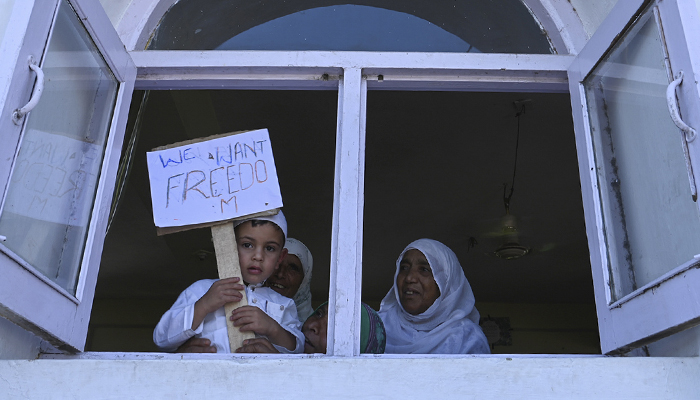
Friday, August 23, marks the third consecutive weekly prayer day when Friday prayers were not allowed in the local mosques of Kashmir, Chanab, and Peer Panchal valleys. Vigilance by the Indian security personnel was once again very high as rumours of the march earlier today had spread.
The call for the march, which comprised men and women, was publicised through posters that appeared at various places in Kashmir while India blocked at least four out of five routes to the UN military observers' office.
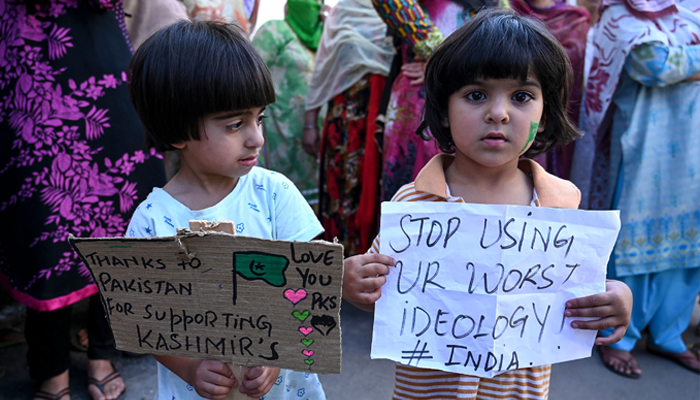
It is noteworthy that despite Indian authorities' deployment of additional paramilitary police, banning public gatherings, and cutting mobile phone and Internet connections, people — especially youth — came out in the lanes of the region’s key city of Srinagar, throwing stones and prompting retaliatory action by security forces.
In addition, locals have constituted small committees at every street and corner in order to protect women from Indian forces' aggression and violence, especially in light of a statement — implying humiliation, harassment, and molestation — by the ruling Bharatiya Janata Party (BJP) and other nationalist, extremist groups that Indians could marry Kashmiri women.
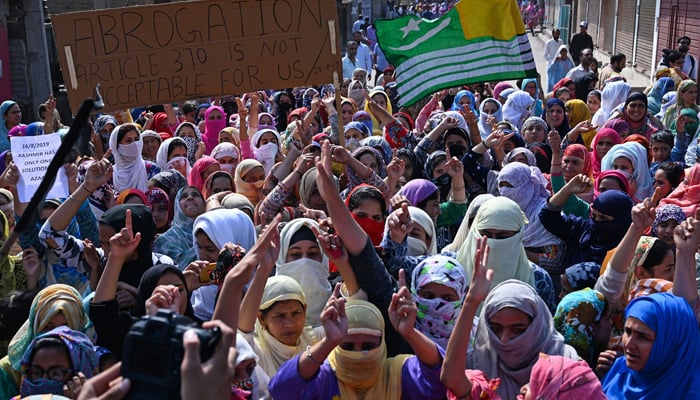
In handbills and pamphlets distributed by these committees, locals were informed that representatives of the Rashtriya Swayamsevak Sangh (RSS) under the guise of Kashmiri pundits would not be allowed to live in the valley.
As per the Kashmir Media Service, the committees have directed people to make local mosques as their gathering points to interact with and offer support to each other.
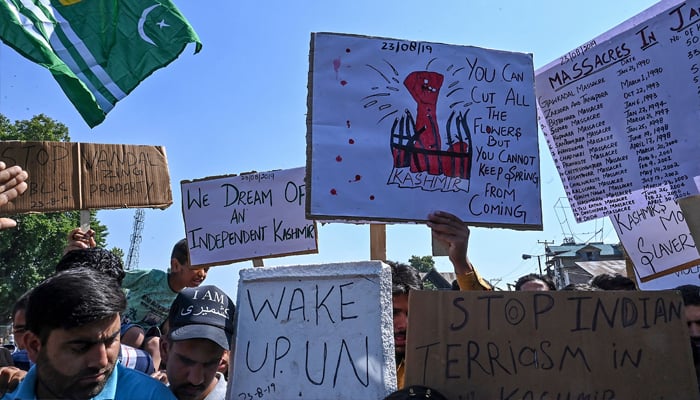
The KMS noted: "Indian authorities have shifted 30 more Kashmiri political prisoners from the Kashmir valley to Agra central jail in the Indian state of Uttar Pradesh. More than seventy Kashmiri political detainees have already been shifted to different Indian jails."
While the horrifying lockdown is about to enter its 20th day on Saturday, a majority of the Kashmiri politicians and other leaders remain under house arrest. No communication and strict curfew have also led to an acute shortage of baby food and vital medicines.
